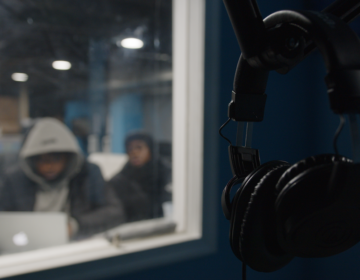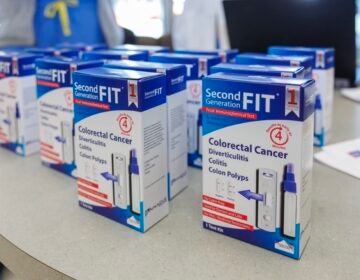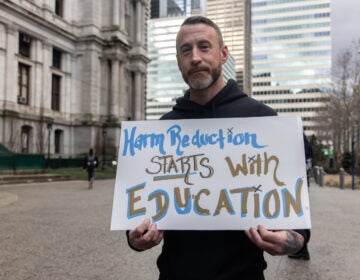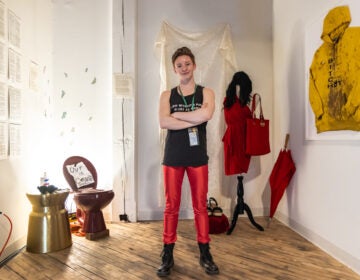A Brewerytown school is now home to the city’s first on-site pediatric dental clinic
Operated by Temple Dental School, the practice aims to increase access to quality care in an area of Philly that has long needed it.
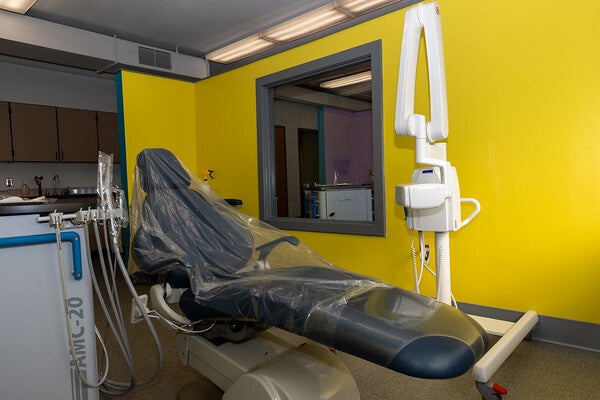
An Operational room with a dental chair in center, x-ray unit (right) and dental unit (left) at the William D. Kelley School in Brewerytown. (Courtesy of William D. Kelley School)
North Philly parents seeking affordable, accessible dental care for their children have a new and unusual option at their disposal: a gleaming pediatric dental clinic located inside their local public school.
On March 1, Temple University’s Maurice H. Kornberg School of Dentistry, in partnership with the Philadelphia School District, opened the Temple University Dental Clinic. Based at the William D. Kelley School at 28th and Oxford streets in Brewerytown, the clinic serves K-8 students as well as children from the surrounding area.
In former classrooms on the school’s third floor, the space has been colorfully retrofitted to accommodate four dental stations, including a treatment room specifically designed to accommodate children with autism or other special needs. Temple staff, including four Temple dental residents, provide a full range of care, including examination, cleaning, and treatments, regardless of a family’s insurance status.
“Because the clinic is inside our school, families feel more comfortable receiving care from a [place] they know cares about the community,” said Kelley School principal Crystal Edwards in a statement. “I am so proud of the work and partnership [with Temple] that has been forged for this amazing resource for our children.”
Funded by Temple and United Concordia Dental, the clinic fills a need for low-income, predominantly African-American families who have had difficulty accessing quality pediatric dental services for a number of reasons, including cost, geographic location of the care, and hours of operation.
Few neighborhood dental practices exist in the area surrounding the Kelley school, and most cannot afford to accept the low reimbursement fees of Medicaid — which is a crucial source of health care insurance for low-income families, many of them African American.
“The way Medicaid fees are structured cannot sustain a practice,” says Amid Ismail, dean of Temple’s dental school. “If I am a private practitioner, and I want to open in North Philadelphia, my practice would not be able to survive to pay my costs of operation or my staff salaries.”
This is why, he noted, many dental offices are concentrated in regions that are economically wealthier, like Center City and some suburbs, where their operations can thrive. But these offices are difficult to access for families in North Philadelphia whose work schedules, children’s school hours, and transportation can be inflexible or unpredictable
As a result, “The care in North Philadelphia is significantly reduced, to the disadvantage of [both] the population and to the providers who want to provide them care,” Ismail said.
Ismail believes that lending Temple’s resources to a neighborhood like Brewerytown is one way to close the dental care gap, because the university is able to accept multiple payment structures that accommodate a neighborhood’s specific demographics.
“The population of Center City should not be different from North Philadelphia in terms of the payment for care,” said Ismail, who hopes that the program launched at Kelley can be modeled nationally.
Temple’s new clinic at the Kelley School has the potential to positively impact the way that Brewerytown itself views oral health, including preventive care, says its clinical director, Eileen Burfass.
As an African-American pediatric dentist, she wants to break down the stereotypes her own parents had — and that still persist in the community — about what dental visits are all about.
“My parents were of the generation [that believed that] you don’t go to the dentist unless something was broken and you were in pain — and it was very costly,” she said. She and her team aim to make dental care at the Kelley school “a positive experience for children, so that going to the dentist is a part of their oral health routine.”
In the meantime, she hopes the community will spread the word that superior dental care is alive, well, and affordable right in their own neighborhood.
“We’ve done a lot of marketing,” she said. “But I think it’s going to take a little bit of time for parents to understand what we’re doing.”
And when they do, “word of mouth” may be the only marketing they’ll need.
WHYY is your source for fact-based, in-depth journalism and information. As a nonprofit organization, we rely on financial support from readers like you. Please give today.




